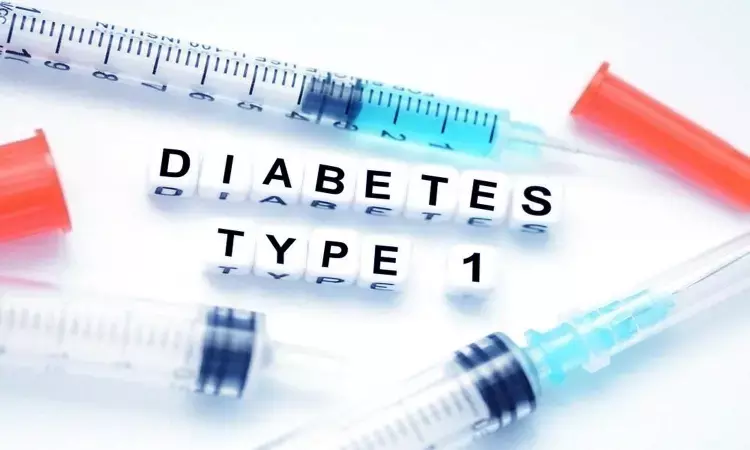- Home
- Medical news & Guidelines
- Anesthesiology
- Cardiology and CTVS
- Critical Care
- Dentistry
- Dermatology
- Diabetes and Endocrinology
- ENT
- Gastroenterology
- Medicine
- Nephrology
- Neurology
- Obstretics-Gynaecology
- Oncology
- Ophthalmology
- Orthopaedics
- Pediatrics-Neonatology
- Psychiatry
- Pulmonology
- Radiology
- Surgery
- Urology
- Laboratory Medicine
- Diet
- Nursing
- Paramedical
- Physiotherapy
- Health news
- Fact Check
- Bone Health Fact Check
- Brain Health Fact Check
- Cancer Related Fact Check
- Child Care Fact Check
- Dental and oral health fact check
- Diabetes and metabolic health fact check
- Diet and Nutrition Fact Check
- Eye and ENT Care Fact Check
- Fitness fact check
- Gut health fact check
- Heart health fact check
- Kidney health fact check
- Medical education fact check
- Men's health fact check
- Respiratory fact check
- Skin and hair care fact check
- Vaccine and Immunization fact check
- Women's health fact check
- AYUSH
- State News
- Andaman and Nicobar Islands
- Andhra Pradesh
- Arunachal Pradesh
- Assam
- Bihar
- Chandigarh
- Chattisgarh
- Dadra and Nagar Haveli
- Daman and Diu
- Delhi
- Goa
- Gujarat
- Haryana
- Himachal Pradesh
- Jammu & Kashmir
- Jharkhand
- Karnataka
- Kerala
- Ladakh
- Lakshadweep
- Madhya Pradesh
- Maharashtra
- Manipur
- Meghalaya
- Mizoram
- Nagaland
- Odisha
- Puducherry
- Punjab
- Rajasthan
- Sikkim
- Tamil Nadu
- Telangana
- Tripura
- Uttar Pradesh
- Uttrakhand
- West Bengal
- Medical Education
- Industry
Insulin and glucagon combo- Novel approach for blood sugar control in diabetes

USA: Co-administration of insulin and glucagon provides protection against insulin-induced hypoglycemia without worsening hyperglycemia in type 1 diabetes (T1D) patients, according to a recent study published in the ADA journal Diabetes.This essentially means that this combo will control high blood sugar along with protection from sudden and severe fall in blood sugar in type 1 diabetes.
The results were also presented at the American Diabetes Association' (ADA) Virtual 80th Scientific Sessions.
Despite advances in the pharmacological and technical fields, the risk of hypoglycemia remains the major concern for the regulation of optimal blood sugar levels in type 1 diabetes. there is an increasing interest in how the opposing actions of insulin and glucagon (Gn) may be harnessed to optimize glycemic control.
For the purpose, Bruce W. Bode from Atlanta, GA, and colleagues studied 11 T1D patients (age 36±4y, gender M:F 5:6, BMI 25.0±0.7 kg/m2, disease duration 23±3y, A1C 7.0±0.3%, daily insulin dose 43±3u) on two occasions, under meal challenge conditions (liquid mixed meal, 100g carbohydrate) during a phased 6h IV regular insulin infusion with (+Gn) and without (-Gn) IV glucagon. On both occasions, subjects were treated overnight with low dose IV insulin prior to the morning meal to prevent antecedent nocturnal hypoglycemia and to attain near-normal fasting glycemia.
Insulin dosing was designed to control the early rise in plasma glucose (PG) but also to elicit hypoglycemia in the later phase.
Key findings of the study include:
- During +Gn, glucagon was co-administered with insulin at a fixed molar ratio. At the two visits, fasting PG was similar (-Gn 121±5, +Gn 119±6 mg/dl) and the initial meal-induced PG elevation (0-3h) was indistinguishable whether glucagon was present or not (peak PG -Gn 224±18, +Gn 228±15 mg/dl; ΔPG 0-180AUC -Gn 10501±3014, +Gn 11537±1778 mg.min/dl).
- During the latter phase (3-6h), 7/11 -Gn subjects experienced an excessive fall in PG to <80mg/dl with 5/11 dropping to 50mg/dl requiring IV glucose rescue (by protocol).
- During +Gn, the fall in PG was attenuated in all cases with a significant difference observed in PG nadir (-Gn 51.1±4.0, +Gn100.5±11.0 mg/dl).
- Appropriate elevations in plasma insulin and glucagon were observed in keeping with study design.
"To conclude, it is feasible that insulin and glucagon can be co-administered under specific conditions allowing protection against insulin-induced hypoglycemia without impeding hyperglycemic control. This unique observation offers insight into novel approaches to glucose control in diabetes," wrote the authors.
Dr Kamal Kant Kohli-MBBS, DTCD- a chest specialist with more than 30 years of practice and a flair for writing clinical articles, Dr Kamal Kant Kohli joined Medical Dialogues as a Chief Editor of Medical News. Besides writing articles, as an editor, he proofreads and verifies all the medical content published on Medical Dialogues including those coming from journals, studies,medical conferences,guidelines etc. Email: drkohli@medicaldialogues.in. Contact no. 011-43720751


